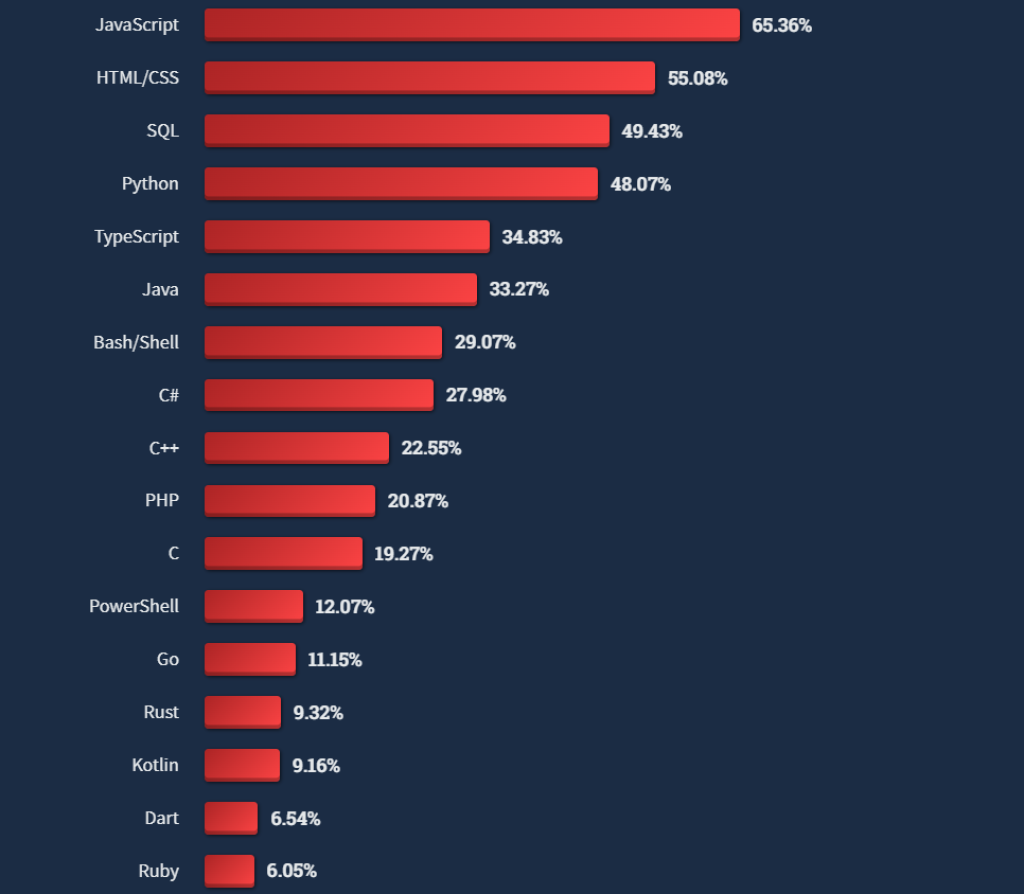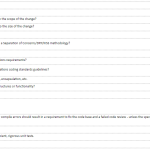The Ultimate Guide To Web Development Languages 2023: Master The Future Of Coding Now!
Web Development Languages 2023
Introduction
Hello Readers,
3 Picture Gallery: The Ultimate Guide To Web Development Languages 2023: Master The Future Of Coding Now!

![Picture of: Best Programming Languages to Learn in [Updated]](https://meicode.info/wp-content/uploads/2023/09/best-programming-languages-to-learn-in-updated.png)

Welcome to an informative article about the future of web development languages in 2023. In this article, we will explore the trends and advancements in programming languages that will shape the web development landscape in the coming years. Technology is evolving at an unprecedented pace, and staying updated with the latest programming languages is crucial for developers to stay ahead in their careers.
Nowadays, websites and web applications have become an integral part of our lives. From online shopping to social media platforms, the demand for web development is skyrocketing. As a result, the need for developers proficient in the latest languages is also increasing.
In this article, we will discuss the key programming languages that are expected to dominate the web development industry in 2023. We will delve into their features, advantages, and disadvantages, enabling you to make informed decisions when choosing the right language for your upcoming projects.

Image Source: imgix.net
So, let’s dive into the world of web development languages in 2023 and explore the exciting possibilities they offer!
Table of Contents
Language
Popularity
Advantages
Disadvantages
JavaScript
High
Flexible, Versatile
Performance Limitations
Python
Popular
Easy to Learn, Readability
Slower Execution Speed
Java
Widely Used
Platform Independence, Robust
Verbose Syntax
![web development languages 2023 - Best Programming Languages to Learn in [Updated] web development languages 2023 - Best Programming Languages to Learn in [Updated]](https://meicode.info/wp-content/uploads/2023/09/best-programming-languages-to-learn-in-updated.png)
Image Source: hackr.io
PHP
Common
Large Community, Scalability
Security Concerns
Ruby
Growing
Elegant Syntax, Productivity
Limited Resources
What are Web Development Languages?
Web development languages are programming languages specifically designed to create websites and web applications. These languages allow developers to write code that defines the structure, behavior, and design of web-based software. They provide a set of instructions that enable computers to interpret and execute the desired functionalities.
Who Uses Web Development Languages?

Image Source: mobindustry.net
Web development languages are used by a diverse range of professionals, including web developers, software engineers, and designers. These individuals possess the necessary skills to write, test, and maintain code using various programming languages. Additionally, businesses and organizations rely on these experts to create and enhance their online presence.
When Should You Use Web Development Languages?
Web development languages should be used when creating websites, web applications, and other online platforms. They are essential for building interactive user interfaces, implementing complex functionalities, and handling data processing. Whether you are a freelancer or part of a development team, understanding these languages is crucial for successful web development projects.
Where are Web Development Languages Used?
Web development languages are used in various industries and sectors that heavily rely on online platforms. Some common areas where these languages are applied include e-commerce, social media, education, healthcare, finance, and entertainment. From small businesses to multinational corporations, the demand for web development languages spans across industries.
Why are Web Development Languages Important?
Web development languages play a crucial role in creating engaging and functional websites and web applications. They enable developers to bring their ideas to life and provide users with seamless online experiences. Moreover, these languages empower businesses to reach wider audiences, increase brand visibility, and generate revenue through their online presence.
How to Choose the Right Web Development Language?
Choosing the right web development language depends on various factors, including the project requirements, scalability needs, performance expectations, and personal preferences. It is essential to evaluate the features, pros, and cons of different languages to make an informed decision. Consider factors such as learning curve, community support, available resources, and compatibility with existing systems.
Advantages and Disadvantages of Web Development Languages
JavaScript
Advantages: 💪
JavaScript is a versatile language that allows developers to build interactive web applications. It runs on both client and server-side, making it a valuable tool for full-stack development. With a vast ecosystem and extensive libraries, JavaScript offers flexibility and enables rapid prototyping.
Disadvantages: 🤔
JavaScript has performance limitations compared to other languages. It can be challenging to handle large-scale projects due to its single-threaded nature. Additionally, JavaScript code can sometimes be prone to security vulnerabilities, requiring developers to implement proper measures.
Python
Advantages: 💪
Python is known for its simplicity and readability, making it an excellent choice for beginners. It offers a wide range of libraries and frameworks, facilitating rapid development. Python’s versatility extends beyond web development, making it suitable for tasks like data analysis, machine learning, and automation.
Disadvantages: 🤔
Python’s execution speed is comparatively slower than languages like C++ or Java. This limitation can affect performance-critical applications. Additionally, Python’s Global Interpreter Lock (GIL) can hinder multi-threaded execution, impacting scalability in certain scenarios.
Java
Advantages: 💪
Java is widely used for enterprise-level web development due to its platform independence and robustness. It offers excellent scalability, high performance, and extensive libraries and frameworks. With a strongly-typed language and strict syntax, Java promotes code maintainability and reliability.
Disadvantages: 🤔
Java’s verbose syntax can sometimes lead to more lines of code compared to other languages. This verbosity can slow down development speed. Additionally, Java requires a Java Virtual Machine (JVM) to run, which might increase memory consumption and startup time.
PHP
Advantages: 💪
PHP has a large and active community, providing developers with vast resources and support. It is widely used for server-side scripting and offers seamless integration with databases. PHP’s scalability and performance make it suitable for building dynamic websites and web applications.
Disadvantages: 🤔
PHP has faced criticism for its security vulnerabilities in the past. Although significant improvements have been made, developers need to implement proper security measures to protect web applications. Moreover, PHP’s syntax and design choices can sometimes lead to code inconsistency and maintenance challenges.
Ruby
Advantages: 💪
Ruby’s elegant and readable syntax promotes developer productivity and code maintainability. It follows the principle of Convention over Configuration, allowing developers to focus on business logic rather than tedious setup and configuration. Ruby’s powerful frameworks, such as Ruby on Rails, enable rapid development.
Disadvantages: 🤔
Ruby has a smaller community compared to languages like JavaScript or Python, resulting in limited resources and documentation. This can make troubleshooting and finding solutions more challenging. Additionally, Ruby’s execution speed is slower compared to languages like C++ or Go.
Frequently Asked Questions (FAQs)
1. Is learning multiple web development languages beneficial?
Yes, learning multiple web development languages can be beneficial as it expands your skillset and versatility. Different languages have their strengths and weaknesses, and being proficient in multiple languages allows you to choose the best tool for each project.
2. Are there any emerging web development languages to watch out for in 2023?
Yes, several emerging web development languages, such as Rust and Kotlin, are gaining traction in the industry. These languages offer unique features and advantages, making them worth exploring for specific use cases.
3. Can I switch from one web development language to another?
Yes, switching from one web development language to another is possible. However, it requires time and effort to learn the syntax, concepts, and best practices of the new language. Prior knowledge of programming fundamentals will facilitate the learning process.
4. Are web development languages constantly evolving?
Yes, web development languages are constantly evolving to meet the demands of modern web development. Developers and language communities regularly introduce updates, new features, and improvements to enhance the capabilities and performance of these languages.
5. How can I stay updated with the latest web development language trends?
To stay updated with the latest web development language trends, you can follow reputable online resources, attend web development conferences, join developer communities, and participate in online forums. Additionally, exploring project showcases and open-source repositories can provide insights into the latest industry practices and innovations.
Conclusion
In conclusion, web development languages will continue to play a vital role in shaping the digital landscape in 2023. JavaScript, Python, Java, PHP, and Ruby are among the popular languages that developers should consider mastering. Each language has its own set of advantages and disadvantages, making it essential to evaluate project requirements and goals before making a decision.
Remember, choosing the right web development language is crucial for creating efficient, scalable, and secure web solutions. Stay updated with the latest trends, explore emerging languages, and continuously enhance your skills to remain competitive in the dynamic world of web development.
Thank you for reading, and we hope this article has provided valuable insights into the exciting world of web development languages in 2023.
Final Remarks
Disclaimer: The information provided in this article is based on industry trends and expert opinions. The popularity and advantages/disadvantages of web development languages may vary depending on individual use cases and preferences. It is recommended to conduct thorough research and consult professionals before making any decisions related to web development languages.
This post topic: Programming


